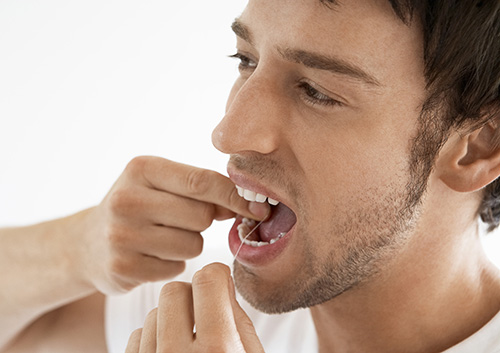What’s in Your Backpack?
February 21st, 2024

Hiking is a great way to appreciate the beauty of nature, to get away from the stresses of daily life, and, of course, to challenge yourself physically. While you’re packing away your sunscreen and your first aid kit, do your body another favor—take a minute to include some lightweight, dental-friendly items.
- Snacks
When you’re exerting yourself, snacks that provide quick energy on the go are a must. Granola, trail mix, energy bars, candy, dried fruit—these are the foods we think of as trail food, and we generally get that quick energy boost from the sugars and starches they contain. As it happens, Dr. Timm and our team strongly recommend you pick snack options other than sugary and starchy foods. Why? Because many sugars and starches provide oral bacteria the food they need to produce acids. These acids weaken enamel and damage our teeth. And these common trail foods often have the added “bonus” of sticking to the teeth, leaving acids even more opportunity to attack. Don’t give up the energy boost you need for a safe hike, but do yourself and your teeth a favor and look for the healthiest granola, energy bars, and gorp out there.
Other suggestions for trail treats that are also a treat for teeth? If you need a chocolate pick-me-up, try dark chocolate. Dark chocolate has more caffeine that milk chocolate and less sugar. (It has other health benefits as well that you might want to look up after your hike.) If you like nuts and seeds, take softer nuts, or sliced nuts—a good source of energy and not likely to provide as much stress on your teeth when you’re in the field. (Shell them beforehand—don’t ever use your teeth as a nutcracker!) Similarly, if you take seeds, leave the shells at home. If you like crackers, try whole grains. Looking for protein? How about a tuna pouch instead of chewy beef jerky?
- Hydrate
Water is always the go-to beverage. Pre-hydrate even before setting out, and have plenty on hand for your trek. Many hiking sources suggest two cups of fluids per hour of activity. (And in hot or humid weather or at high altitudes, you could need even more.) There are actually hiking water calculators online, which can give you a good estimate on how much you’ll need for your trip, taking into account your age, weight, level of activity, and other factors. Because water can get heavy, plan a lengthy hike around the availability of fountains or other clean water sources if necessary.
What if you feel the need for more than water? If you are getting a good workout, you’re probably losing electrolytes. Generally, sports drinks aren’t on the dental menu. They tend to be loaded with sugar and carbs—good for energy, bad for teeth. Sports drinks can be as acidic and hard on your enamel as sodas. But if you need those electrolytes on a long hike, don’t feel guilty. There are many options—choose the healthiest one for you and your workout level.
- Be prepared!
While you are probably already packing a mini-first aid kit for long hikes, think about a lightweight dental emergency kit as well. These are readily available online and in outdoors stores, and usually contain supplies like cotton balls, dental floss, oral pain relievers, even temporary fillings, in a lightweight bag.
And once your hike is done? Rehydrate, and don’t forget to treat your teeth to a good brushing and flossing when you get home.
Got all that? Great! Now, go take a hike!



